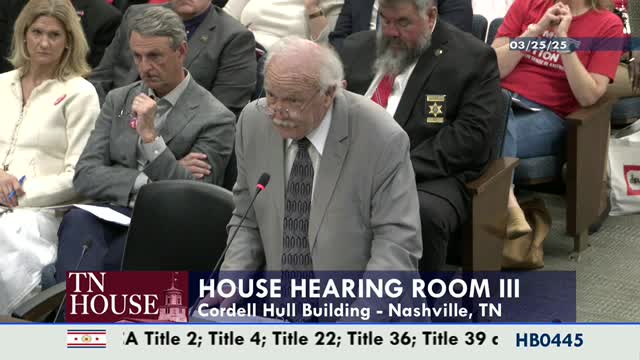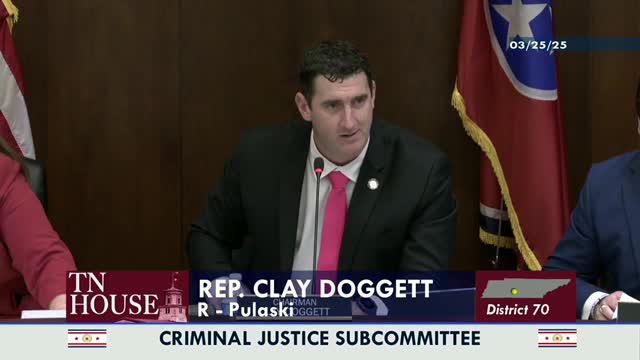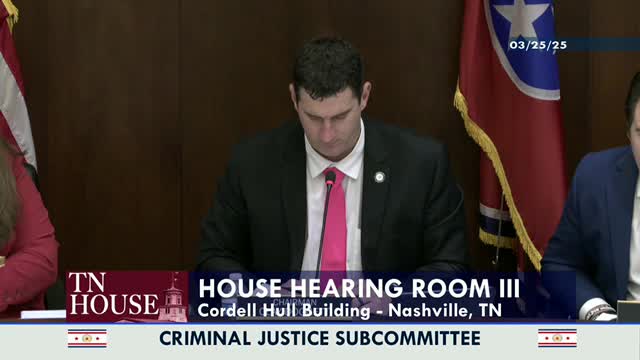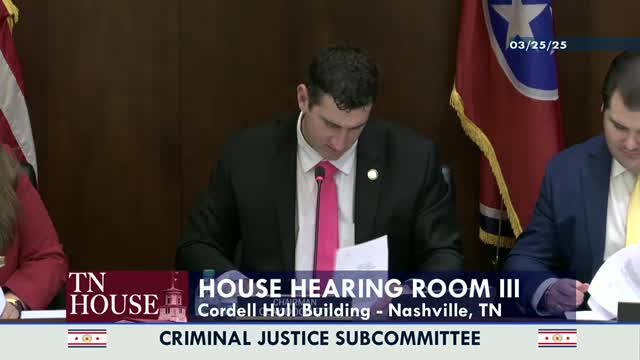Article not found
This article is no longer available. But don't worry—we've gathered other articles that discuss the same topic.

Subcommittee advances overhaul of felony voting-rights restoration; critics say bill raises barriers

Criminal Justice Subcommittee: votes at a glance — March 25, 2025

Panel advances bill allowing courts to refer certain geriatric inmates to parole review; adds judge discretion on hearings

